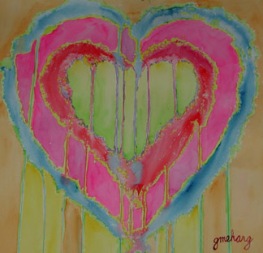But you were also the red song
in the night,
stumbling through the house
to the child’s bed,
to the damp rose of her body,
leaving your bitter taste.
From “Rage” by Mary Oliver
in Dream Work, 1986
My sabbatical project includes giving some sustained attention to the prose and poetry of Mary Oliver, whose latest book, Upstream, was released last week.
Oliver is beloved by many. Only Rumi gives her a run for her money in terms of poetry sales in the American market. Yet there is a dearth of critical studies  of her work; accessibility in poetry seems to disincline serious scholarly engagement. It is true that her substantial output is mixed, a hazard for anyone in any field whose published work spans more than half a century. It’s also true, I think, that her best poems are not her most popular poems.
of her work; accessibility in poetry seems to disincline serious scholarly engagement. It is true that her substantial output is mixed, a hazard for anyone in any field whose published work spans more than half a century. It’s also true, I think, that her best poems are not her most popular poems.
+ + +
In the last three weeks a cultural conversation about sexual assault has revealed anew and painfully what is a given: that the violation of bodies–and of minds and spirits–takes many forms. This “conversation”–a descriptor that may be too charitable for the actual exchange of words taking place–has reminded many people (mostly women, maybe, but not just women) of the first time they were “grabbed.” (One of those words that is as ugly as what it names). It has brought to the surface the ways that many of us have internalized, naturalized our fears–how hypervigilance has been our way in the world, how one man’s breathtaking crudeness and moral bankruptcy can leave us shaken for days. (Last week Michelle Obama shook with truth and power and eloquence. Watch the whole speech).
This conversation (okay, this talk-past-each-other shouting match) has made evident that the toxic masculinity which continues to harm boys and poison relationships of all kinds is tolerated with a shrug and a smirk, endorsed with a playful wink. It has shown us how damaging and disgraceful things said about Muslims, African-Americans, Latinos, and others–over and over and over–barely register in our public consciousness but, hey, just say something about white women and we are all over it.
+ + +
The theme that pervades the work of Mary Oliver is that of a continual call to attentiveness. Readers of her poetry usually take this, rightly, as a summons to tend to the natural world that she writes about so compellingly–to see it, know it, name it, cherish it. But such a discipline surely extends to the whole of life, to what it means to be a fully alive, fully present human being in the world. In this Oliver is a kindred spirit with Simone Weil who wrote that “attention is the rarest and purest form of generosity.”
This comes through in Oliver’s poems about people, places, causes she cares about–poems not as numerous, maybe, as the ones about ponds and swans and bears–but significant in her work nonetheless. And the call to attentiveness is present in less overt ways in her poems about the physical and emotional abuse she suffered from her father. These poems are instructive for how she (and we) might think about attentiveness not just as a necessary art for loving the world but as a skill for survival and ultimately for thriving as a human being. Her poem “The Journey” is written in the second person but is about her own life. (She has acknowledged this). In the closing lines Oliver says
. . . you strode deeper and deeper
into the world,
determined to do
the only thing you could do–
determined to save
the only life you could save.
One can practice this kind of determination–even if falteringly, in fits and starts, full of self-doubt–only if one has tried to be attentive to everything that has made the very daring of determination necessary, and has attended to one’s own wounds as an act of generosity to oneself.
And I think about how some familiar lines of Oliver’s take on new meaning when read through the lens of this current cultural moment. I would like to think they can be taken as an invitation to try and set aside our fears (but not our outrage), and as a summons not only to attentiveness but to courage. They are words born of the knowledge that to be a fully alive, fully present human being in this world–and to care about that kind of flourishing for all persons–is to speak, even when you’re shaken and shaking, and to tell all that needs to be told.
Instructions for living a life:
Pay attention.
Be astonished.
Tell about it.
From “Sometime” in Red Bird, 2008
Leave a comment